Equal Pay Day is April 2 this year, and with it comes the reminder of how far women have to go until they earn the same as what men earned the previous year.
The gender pay gap in the United States means that women make just 82 cents for every dollar that men do, according to the Bureau of Labor Statistics. The problem is even worse for women of color. Black women made just 68 cents for every dollar white men did in 2017, BLS data showed, and Latina women made 62 cents on the dollar.
While pay equity hasn’t been a major issue in the 2020 presidential race so far, many candidates have, over the course of their careers, expressed their views on the wage gap. So in honor of Equal Pay Day, here is what each presidential candidate has said or done when it comes to equal pay.
Kirsten Gillibrand
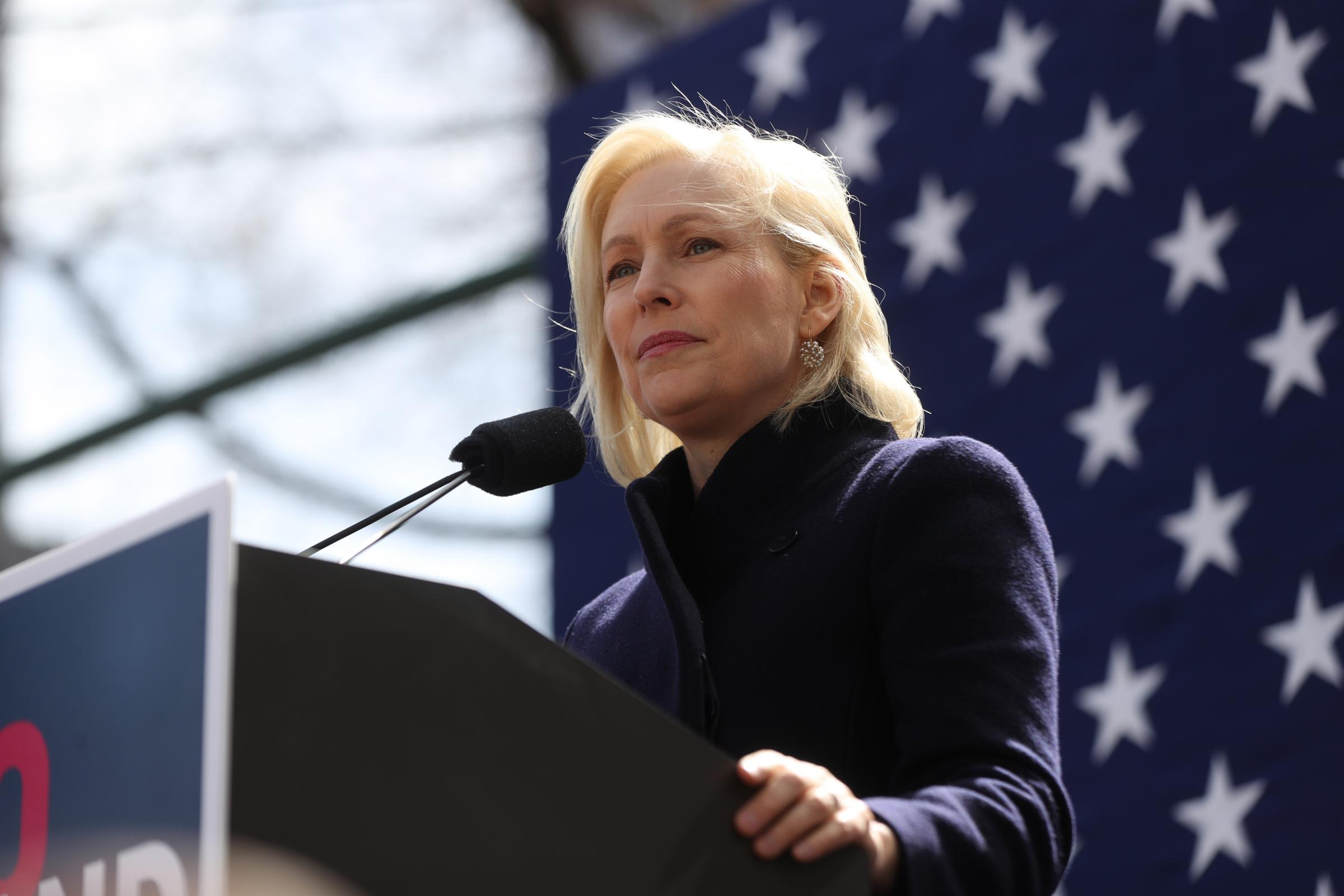
The New York senator has put advocating for women at the forefront of her campaign. She has often spoken on the Senate floor on past Equal Pay Days, and her campaign website promises she will advocate for equal pay for equal work. Gillibrand has co-sponsored legislation called the Paycheck Fairness Act, a version of which recently passed in the House. The law would ban employers from asking job applicants how much they previously made, make it illegal for companies to retaliate against employees who ask about their wages and raise penalties for equal pay violations. When she served in the U.S. House of Representatives, she co-sponsored the House version of the Lily Ledbetter Fair Pay Act, a law that gave employees more time to file lawsuits alleging pay discrimination.
Gillibrand has also championed universal paid family leave, which research has shown could help close the gender pay gap, by introducing her FAMILY Act — which would create a national paid family and medical leave program — in every Congressional session since 2013. She also supports a $15 minimum wage. (Women make up nearly two-thirds of minimum wage workers, according to the BLS.) She is also a co-sponsor of the Equal Rights Amendment, which would guarantee legal equality for men and women in the Constitution.
Kamala Harris
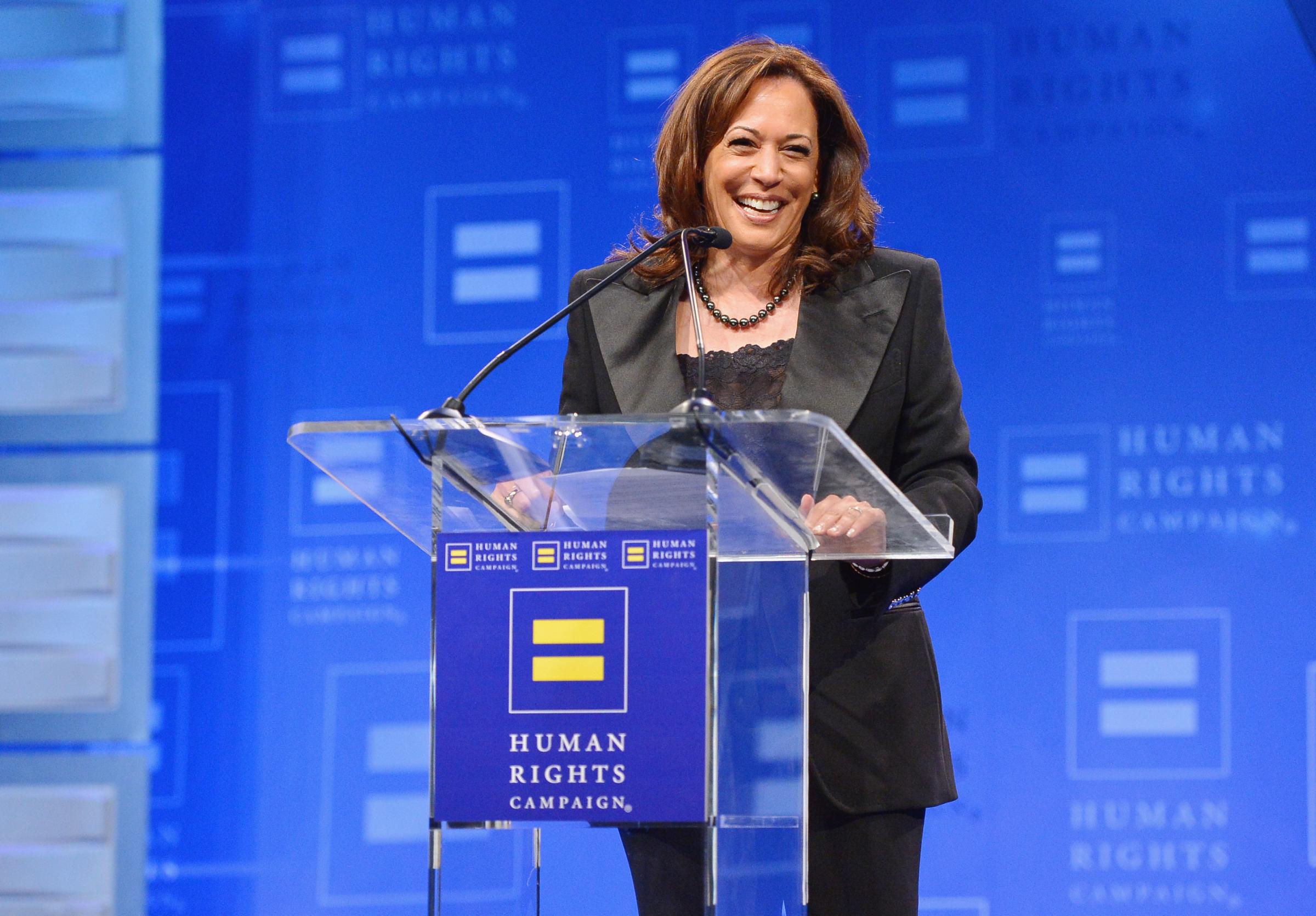
Harris has also been outspoken about her support for equal pay and has put a particular emphasis on advocating for women of color. She has previously written about the topic and outlined strategies for increasing pay equity, including advocating for pay transparency, preparing black women for better jobs and raising the minimum wage to $15 an hour. Harris also backs the Paycheck Fairness Act and has co-sponsored Gillibrand’s paid family leave legislation. At a February campaign stop in Iowa, the California Senator said passing the Equal Rights Amendment — which she is also co-sponsoring — is “the first step to lifting women’s economic status.”
Elizabeth Warren
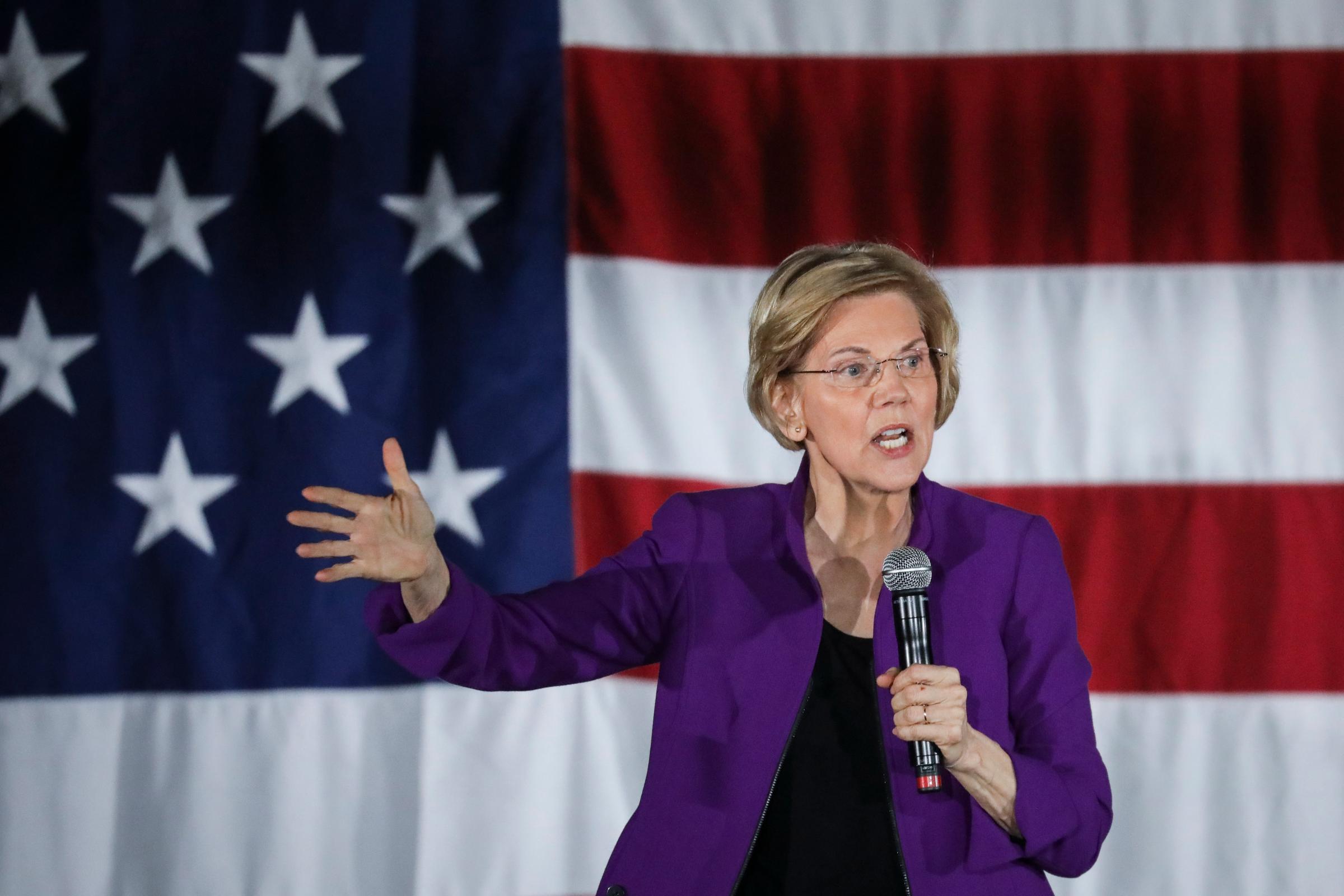
Economic justice is a signature issue for Warren, and this includes advocating for equal pay and a $15 minimum wage. She has co-sponsored the Paycheck Fairness Act and Gillibrand’s FAMILY Act, and recently joined colleagues in the Senate when they re-introduced the Equal Rights Amendment. Warren, a Democrat from Massachusetts, has also written pieces pushing for equal pay and gave an impassioned speech in the Senate in 2016 saying the fact that the U.S. still needs Equal Pay Day is a “national day of embarrassment.” In 2017, a conservative website reported that Warren’s Senate office paid women less than men, but it turned out their data was incomplete, as it left out several high-paid women in her office.
Bernie Sanders
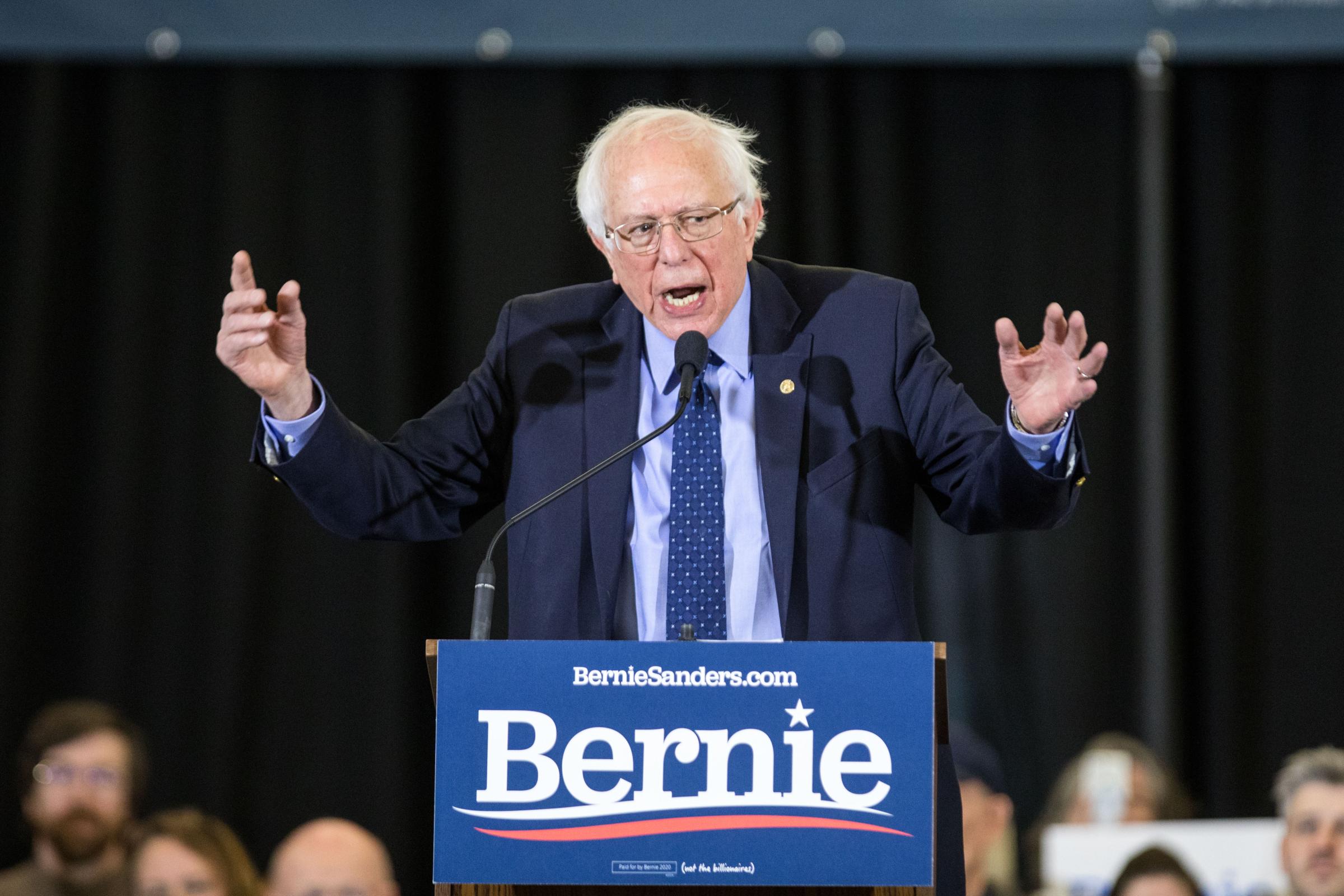
The Vermont senator has often said he supports equal pay for equal work. Like Warren, he frequently focuses on economic issues, including pay equity, paid family leave and raising the minimum wage to $15. Sanders has co-sponsored the Paycheck Fairness Act and the FAMILY Act, and includes “pay equity for women workers” on his 12-point economic agenda.
However, the Senator had to apologize earlier this year when a number of women who worked on his 2016 presidential campaign came forward with complaints about sexual harassment and pay disparities. “I certainly apologize to any woman who felt she was not treated appropriately, and of course if I run we will do better the next time,” Sanders said on CNN in January. During the 2016 primaries, he also faced criticism over the fact that none of the top 10 highest-paid staffers on his payroll were women. (The campaign did not respond to that controversy at the time.)
Cory Booker
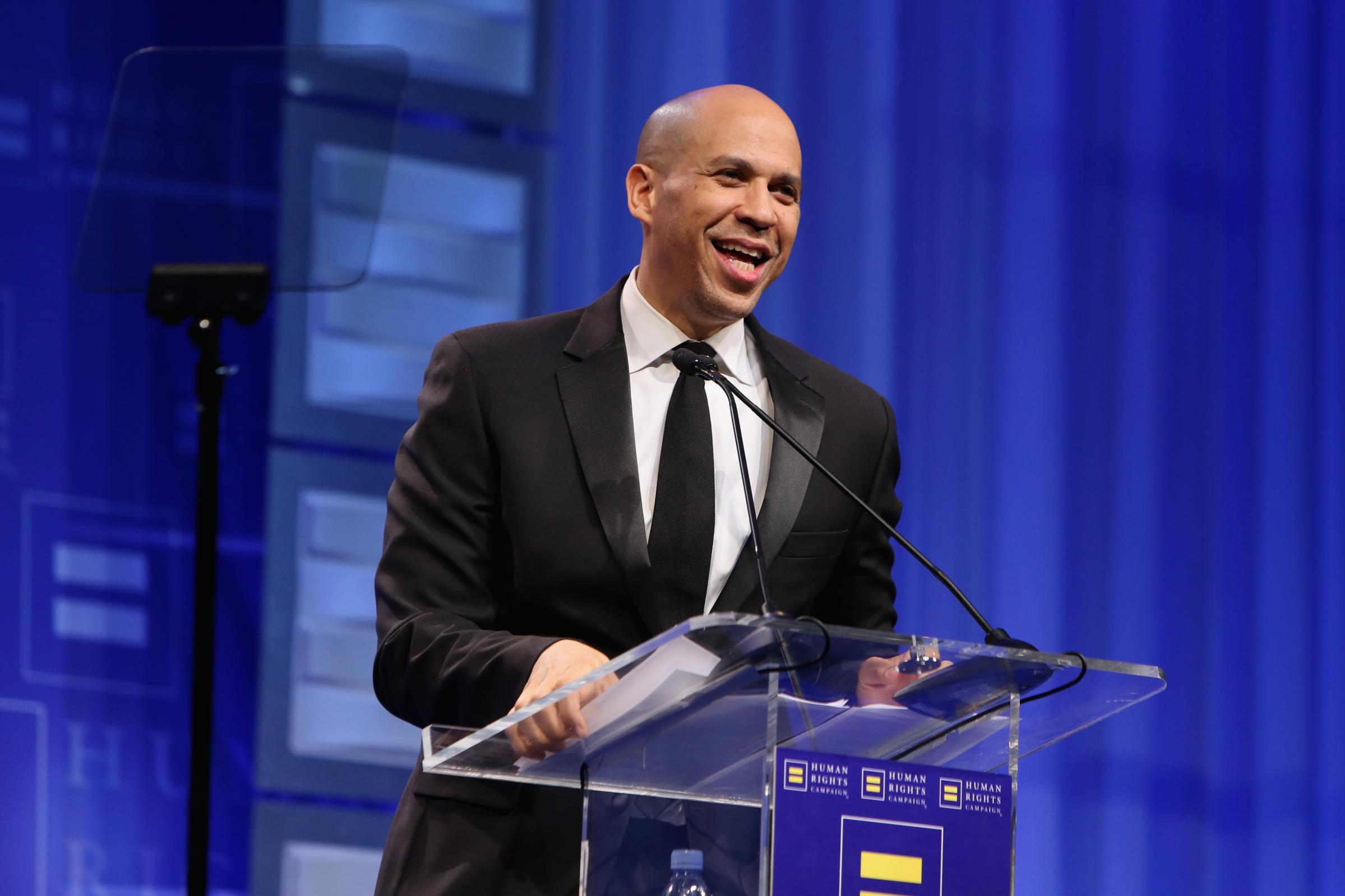
Booker, a senator from New Jersey, is known for his active social media presence, where he often talks about advocating for women and being an unabashed feminist. He has co-sponsored the same legislation as many of his fellow Democratic candidates — the Paycheck Fairness Act, the FAMILY Act and the Equal Rights Amendment — and last summer he called for the Government Accountability Office to study pay differences between men and women in the federal government. He also supports a $15 minimum wage.
Amy Klobuchar
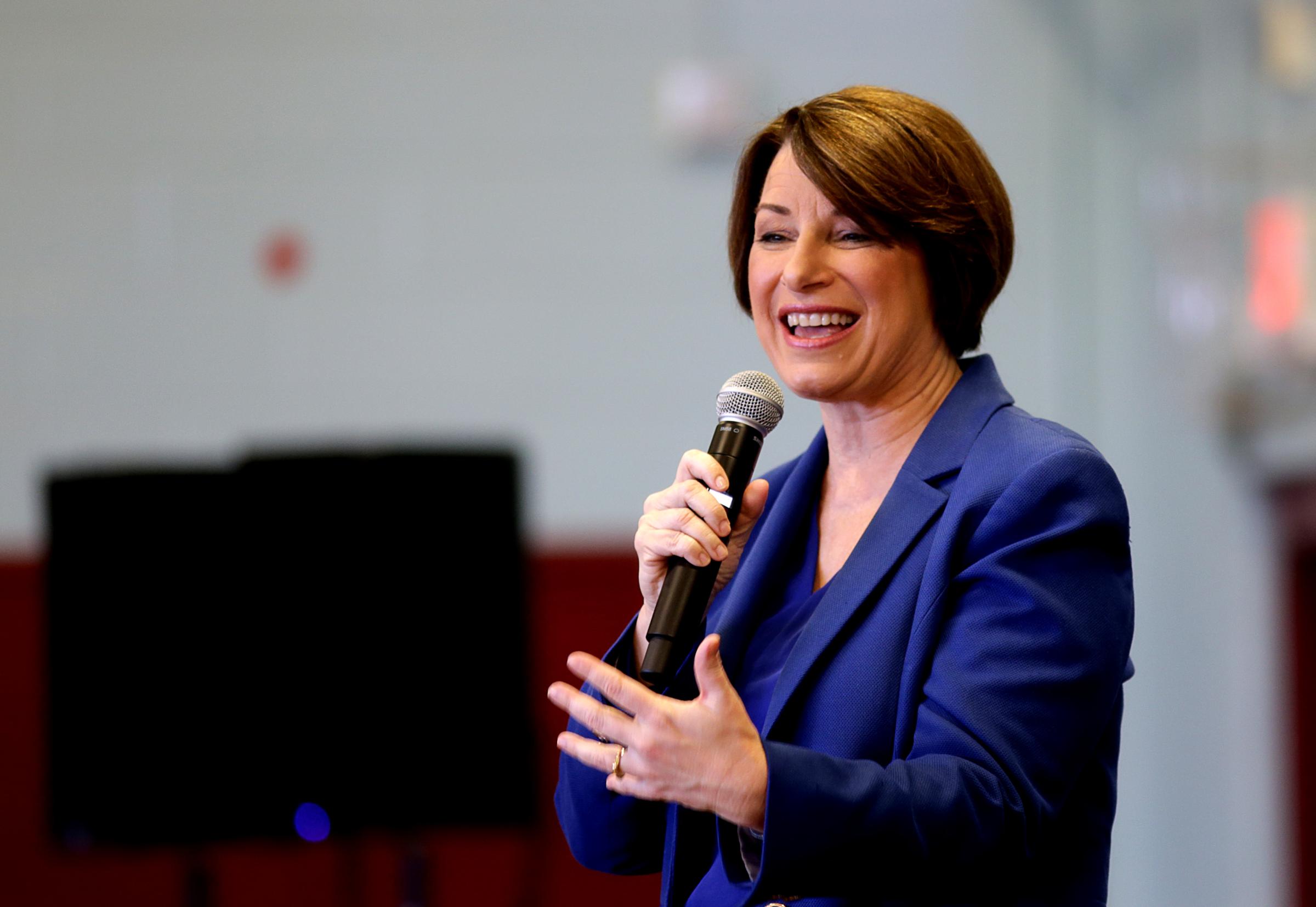
Like her Senate colleagues on this list, Klobuchar has co-sponsored the Paycheck Fairness Act, the FAMILY Act and the Equal Rights Amendment and supports raising the minimum wage to $15. The Minnesota senator has spoken out about the need for equal pay, and in 2014 her office released a report around Equal Pay Day showing that lower wages for women impact them not only while they’re working but also through retirement. She has also pointed out that pay equity is not just about salaries, but also about giving women equal opportunity to enter male-dominated jobs such as those in the STEM fields. Klobuchar recently saw some criticism after several reports alleged that she treats her staff poorly and has what some considered a restrictive paid leave policy. She defended her treatment but also promised to “do better” by her staff.
Pete Buttigieg
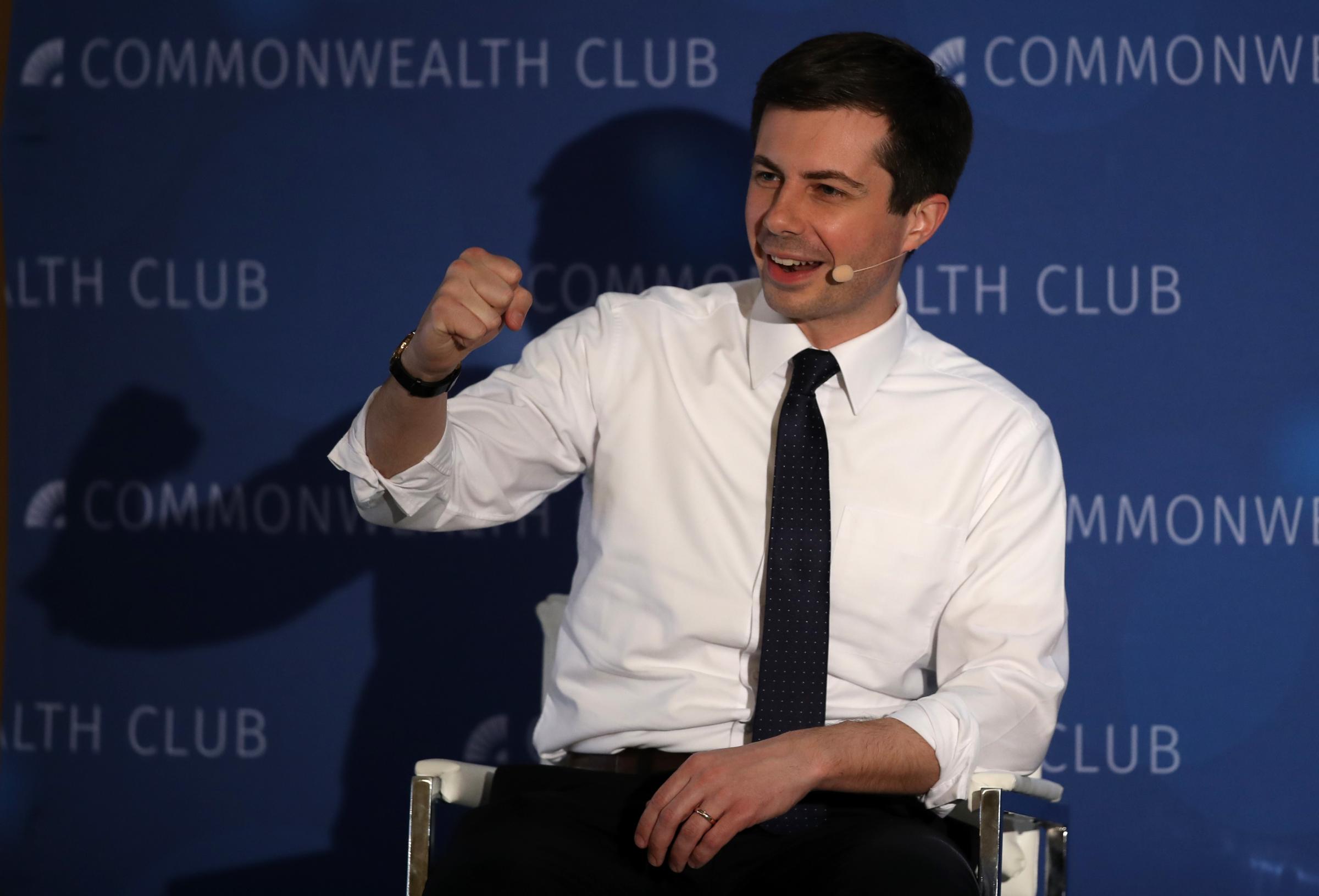
As mayor of South Bend, Indiana, Buttigieg has had fewer opportunities to speak out on issues at the national level than many of his fellow Democrats. But he has supported gender pay equity in his role as mayor. He has issued official declarations recognizing Equal Pay Day, and in 2012, he spoke at a pay equity rally in South Bend, noting that Indiana ranked 47th in the country when it came to pay parity. The gender wage gap “is an embarrassment to our country,” he told the crowd, according to the South Bend Tribune.
Beto O’Rourke
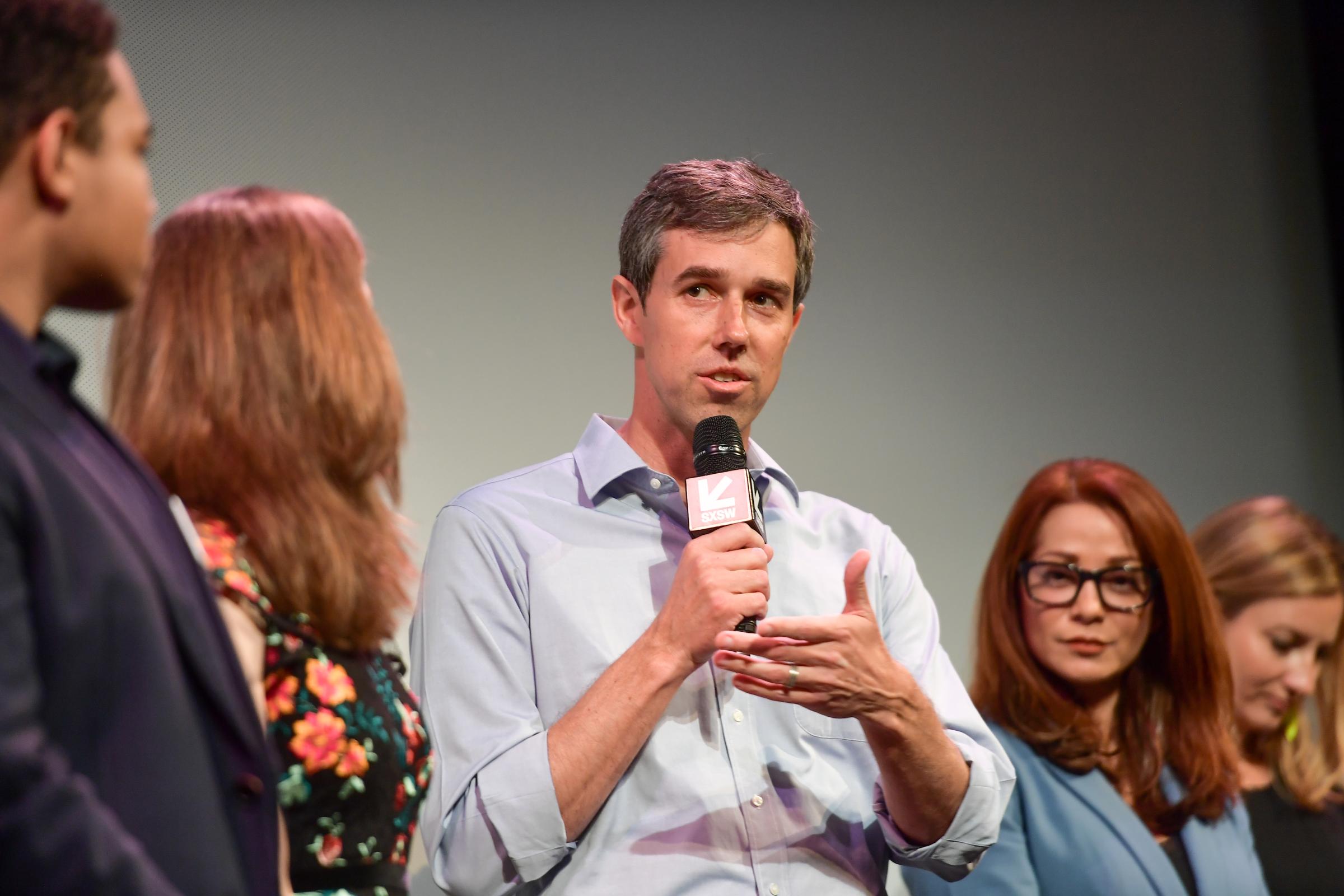
When he was a representative from Texas, O’Rourke co-sponsored the Paycheck Fairness Act and the FAMILY Act. He talked about supporting women while he was running against Ted Cruz for the Senate last year, and has tweeted about the need for equal pay for women, including women of color.
Julián Castro
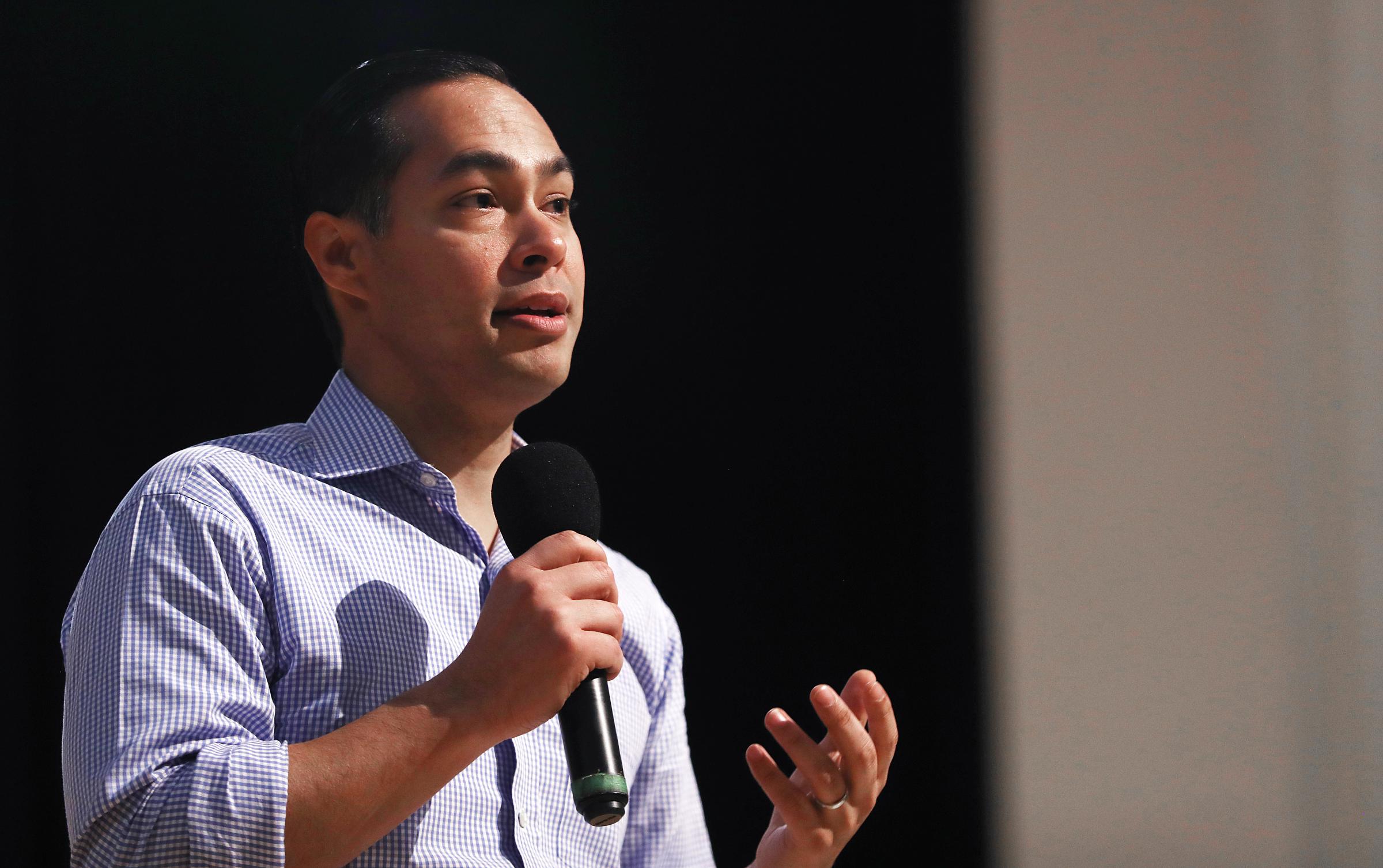
As President Obama’s former Secretary of Housing and Urban Development and former mayor of San Antonio, Castro does not have the same kind of legislative record that some of the other 2020 candidates do. He has called for a higher minimum wage and tweeted about how his mother supported women’s pay equity when he was growing up. However, the Equal Employment Opportunity Commission found in 2014 that San Antonio discriminated against three women by paying them less than their male colleagues and retaliated when they complained — all while Castro was mayor. Shortly before he left San Antonio for the Obama Administration, Castro ordered an outside review of pay disparities in the city, according to the San Antonio Current.
Tulsi Gabbard
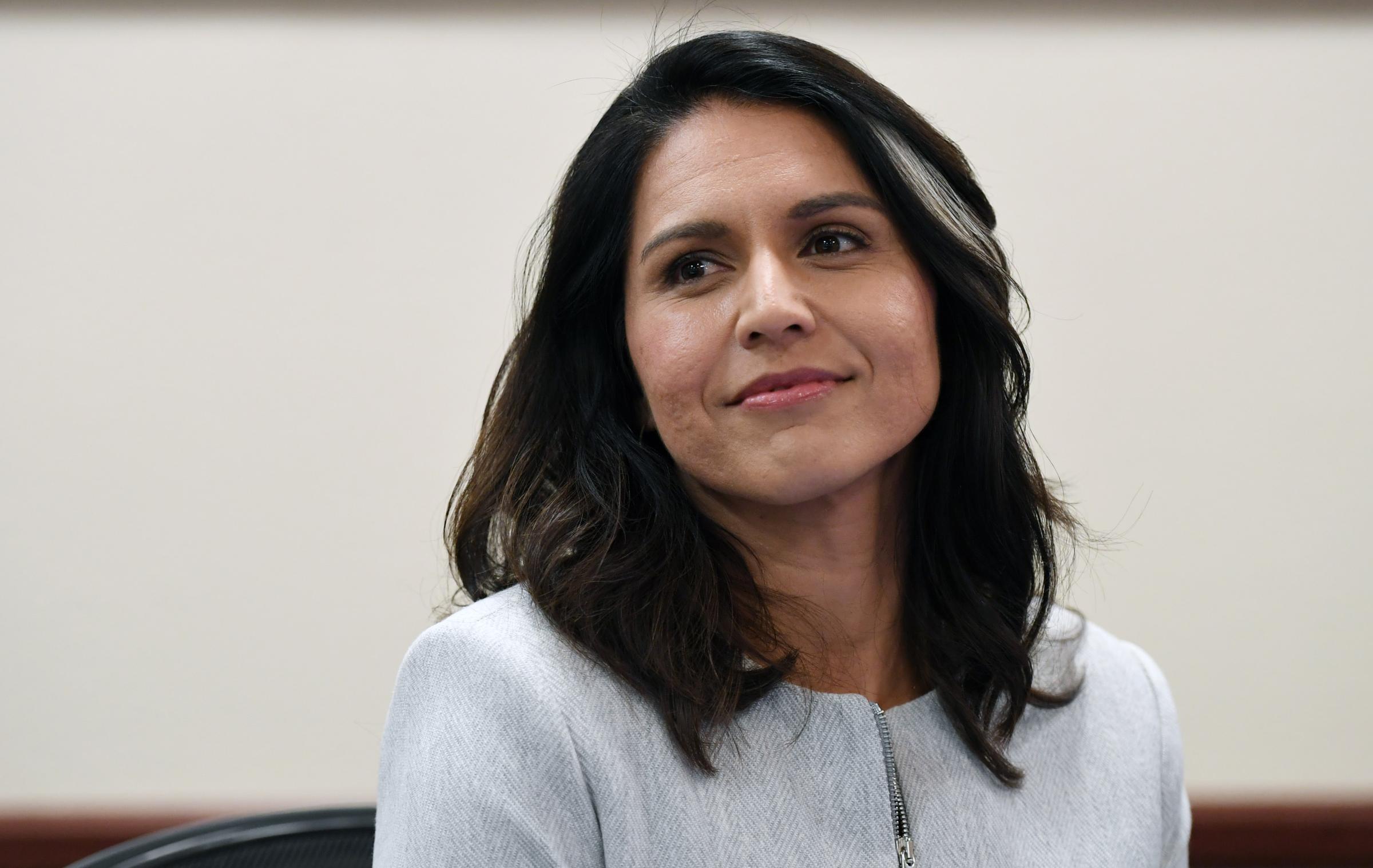
As a representative from Hawaii, Gabbard has co-sponsored the Paycheck Fairness Act and the FAMILY Act and recently spoke on the House floor in favor of the Equal Rights Amendment. She has spoken out on social media about how pay equity is an issue that affects all families and impacts women throughout their lives. Gabbard also supports a $15 minimum wage.
John Hickenlooper
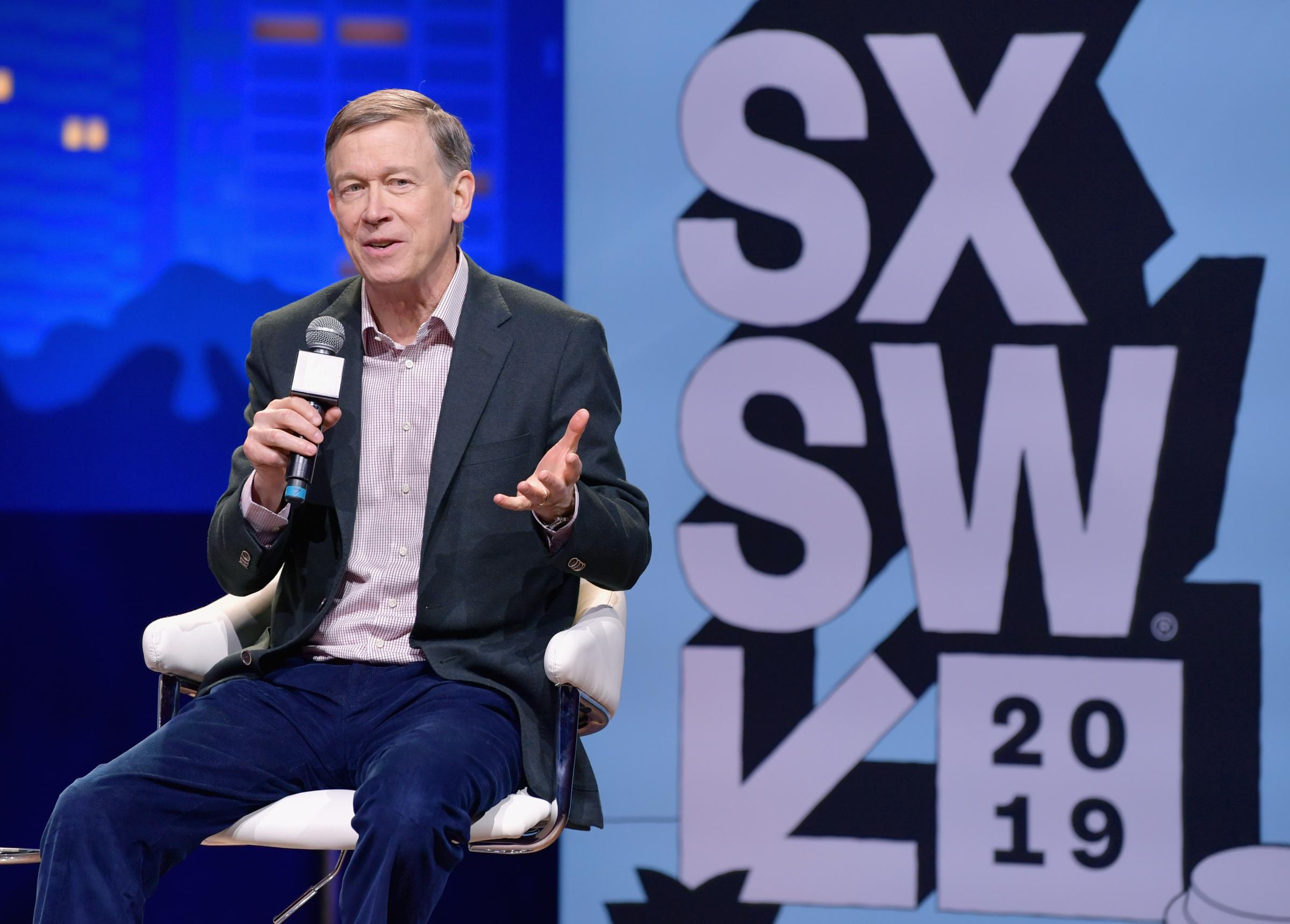
The former governor of Colorado and former Denver mayor has not spoken much publicly about pay equity. In 2018, he did declare April 10 “Equity For All Day” in Colorado, though this was in coordination with an organization’s marketing push for its work to close the gender pay gap. A few years earlier, in 2013, Hickenlooper signed legislation that extended the federal Family and Medical Leave Act to include domestic partners in Colorado. Since launching his presidential campaign, Hickenlooper has said he supports a $15 minimum wage and that his vision for American workers would include creating a paid family and medical leave plan.
John Delaney
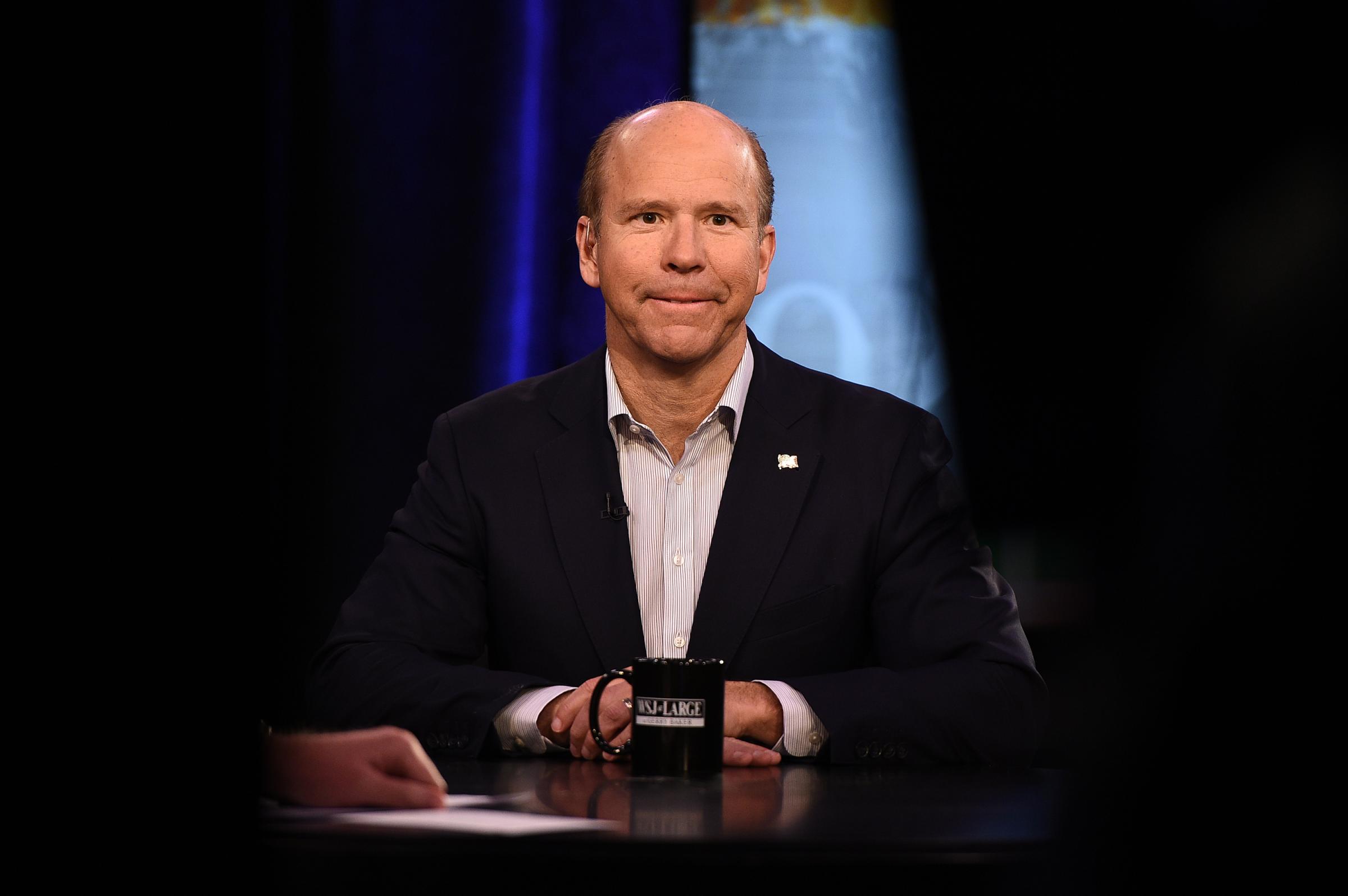
During his three terms representing Maryland in the House, Delaney co-sponsored the Paycheck Fairness Act, the Equal Rights Amendment and the FAMILY Act. He has frequently tweeted about his support for pay equity, and in 2015 he posted a photo of himself holding a sign that read “equal pay for equal work is a core American value.”
Jay Inslee
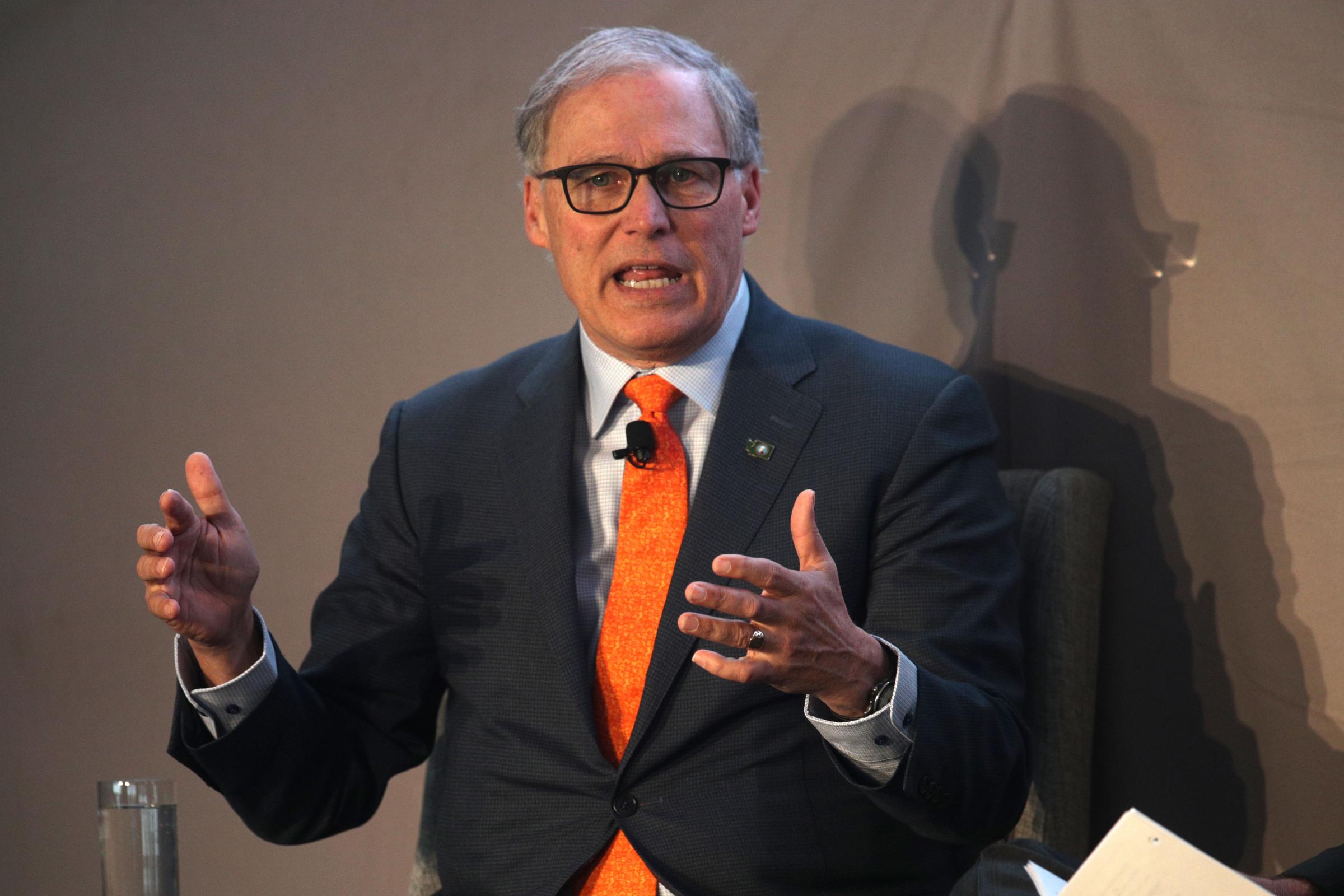
Inslee is the governor of Washington state, and in March 2018 he signed legislation that aims to reduce the gender pay gap in his state. The Equal Pay Opportunity Act requires employees to receive equal pay for equal work, makes it easier for employees to file complaints over unfair pay and protects them from retaliation when asking about wages. He also signed a law guaranteeing paid family leave in Washington and supports raising the minimum wage. On past Equal Pay Days, Inslee has tweeted his support, saying in 2016, for example, that the day serves as a “reminder of the work we have left to assure equal pay for equal work.”
Andrew Yang
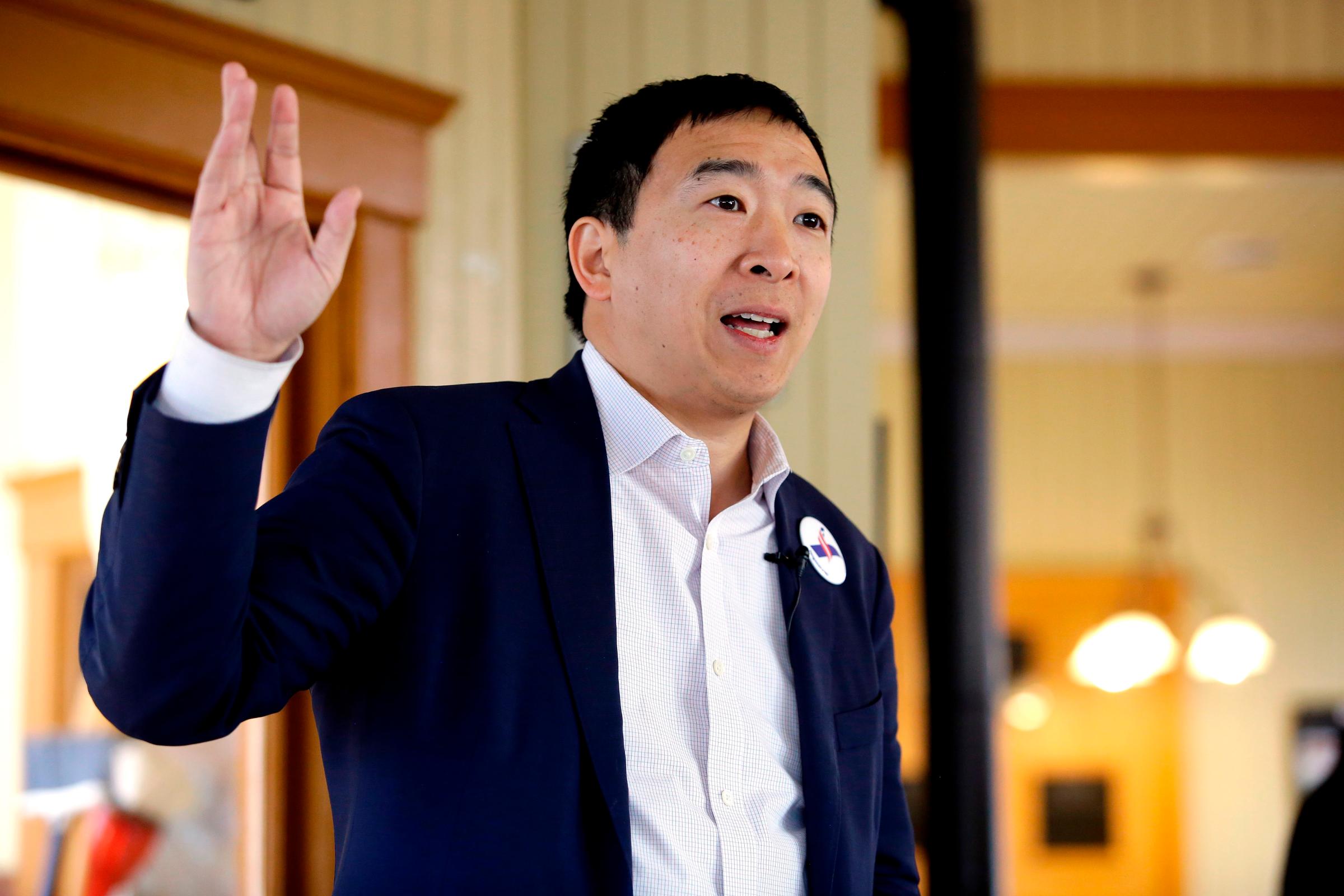
The tech entrepreneur is running a very long-shot campaign full of policy ideas, and one of them is that he wants to fight for equal pay, according to his campaign website. Yang notes that women make less than men, and that women of color make lower still — something that he would solve by working with states to implement salary disclosure laws, requiring federal contractors to pay employees equally and launching new studies around pay equity in the federal workforce. One of Yang’s signature policy ideas is that he wants to create a universal basic income of $1,000 per month for all Americans, which he says would give women more economic independence.
Marianne Williamson
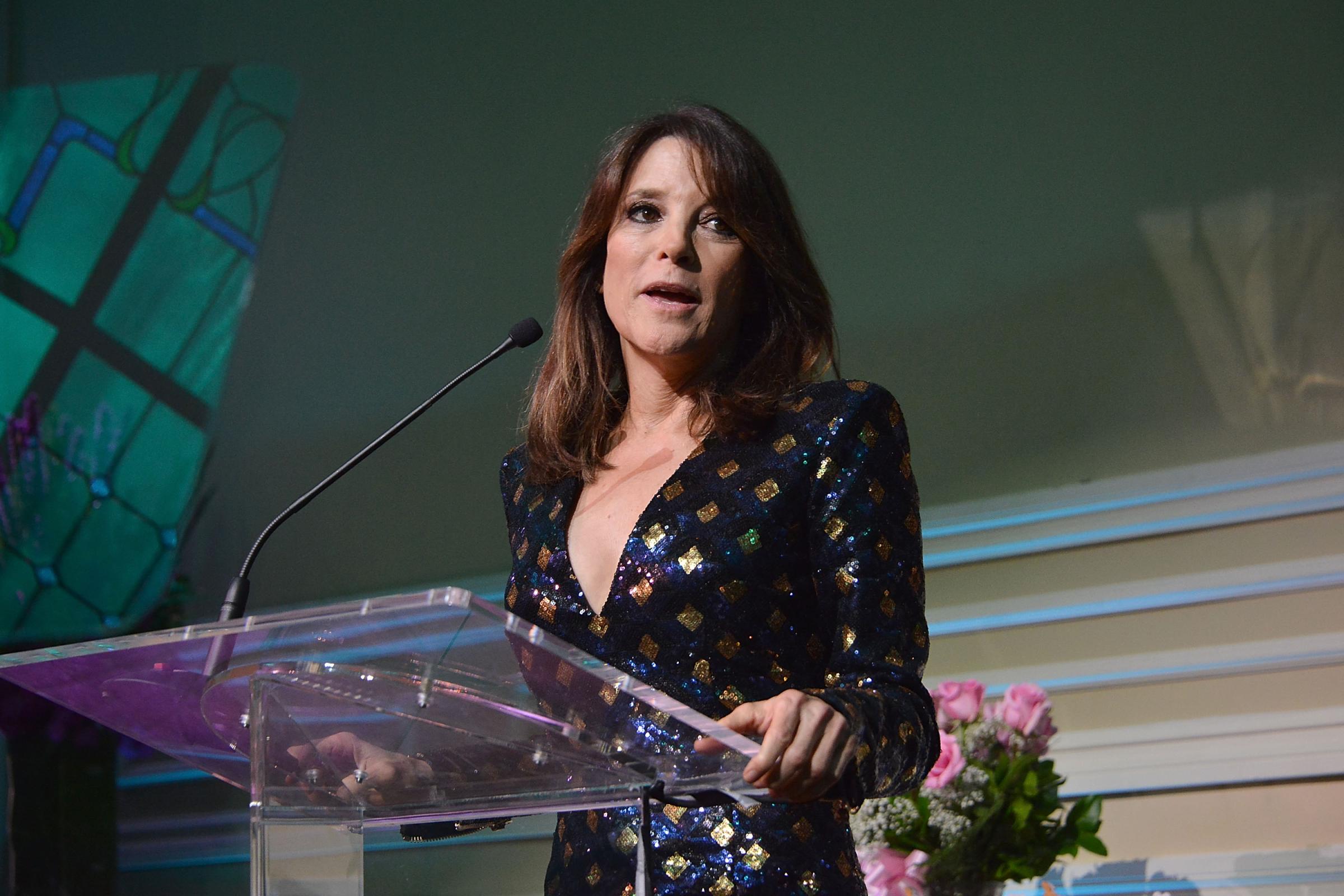
The inspirational speaker and author includes equal pay for equal work as a policy proposal on her website, supports the Equal Rights Amendment and says she would use the “full powers of the presidency to advocate for the things women care about.” Like Yang, she is a long-shot outsider and has proposed a $1,000 per month universal basic income plan.
Wayne Messam
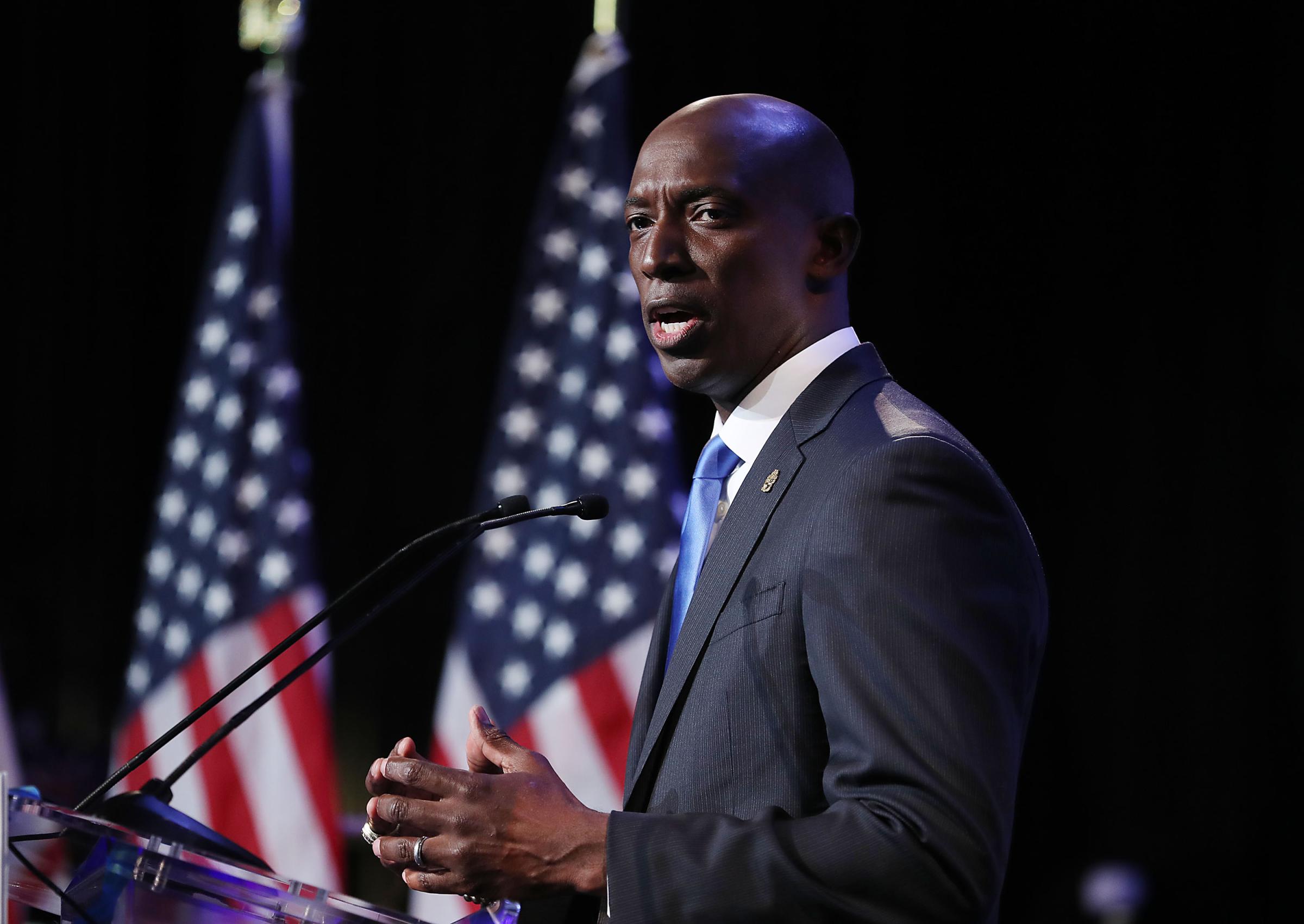
The mayor of Miramar, Florida, Messam launched his 2020 campaign for president on March 28. He has not spoken publicly about pay equity yet, and his main proposal so far is focused on eliminating $1.5 trillion in student debt.
Donald Trump
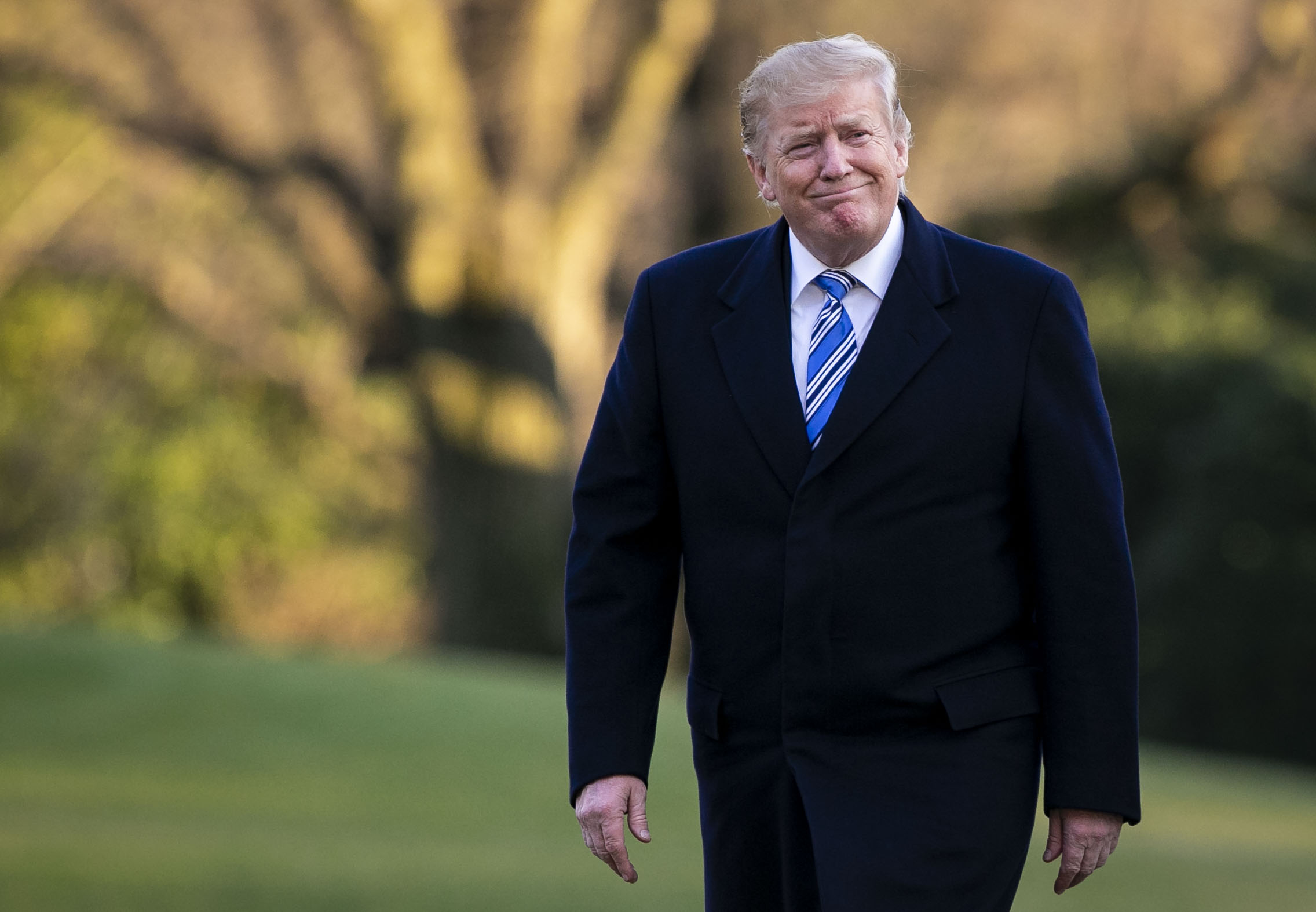
President Trump has made varying comments on the gender pay gap over the years. While on the campaign trail in 2015, he said in multiple interviews that he supported equal pay for women in theory, but that the reality was difficult. “If they do the same job, they should get the same pay,” he said on MSNBC’s Morning Joe in 2015. But he said categorizing people could be “dangerous,” adding: “It’s very hard to say what to say what is the same job.” He also told an Iowa TV station that year that “[i]f you start to say everybody gets equal pay, you get away from the whole American Dream” and if everyone gets the same, “you’re into a socialistic society.” Trump told CNN that he “absolutely” paid women at his company the same as men and sometimes more, and former Trump Organization executive Barbara Res told Rolling Stone that she didn’t think her gender affected her pay while working for Trump.
Since taking control of the White House, however, Trump has made a number of moves that critics say could harm pay equity. In 2017, he stopped an Obama-era rule meant to address the wage gap by requiring large companies to report to the government how much they pay employees by race and gender. (A federal judge recently overruled the Administration and revived the rule.) And last year, Trump’s Department of Labor gave federal contractors a bigger role in the process of auditing themselves for pay discrimination, according to Bloomberg Law. In her speech at the Republican National Convention, Trump’s daughter Ivanka, now an advisor in the Administration, promised that she and her father would fight for equal pay, but a Washington Post analysis in 2017 found that the gender pay gap among White House employees actually tripled under Trump.
Bill Weld
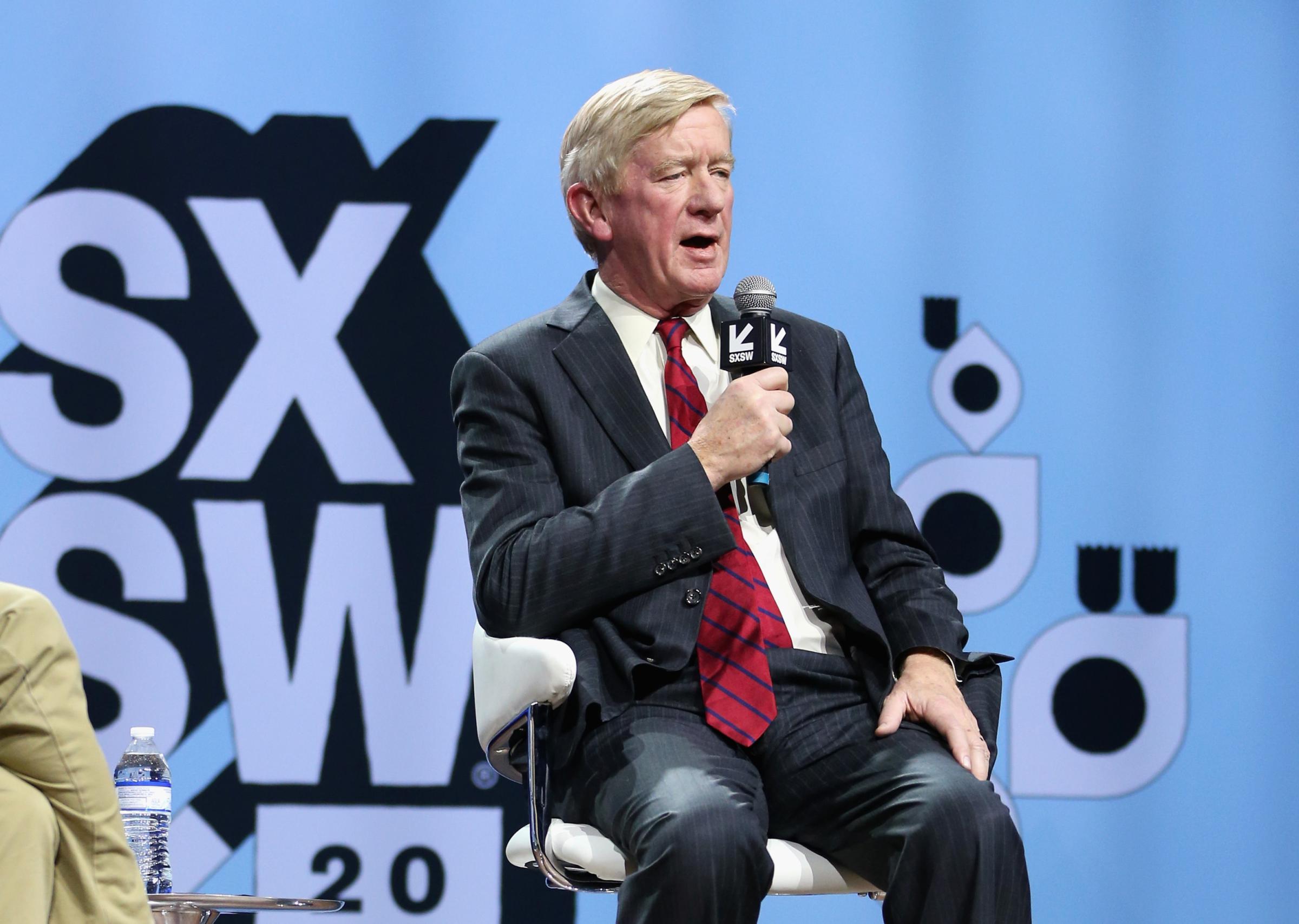
The former governor of Massachusetts is the only Republican so far who has said he will challenge Trump in 2020. During the presidential election in 2016, Weld left the Republican Party to run for vice president on the Libertarian Party’s ticket. Now he’s returned to the GOP. In his early campaign stops, he has spoken about a commitment to advocating for LGBT people, people of color and women who experience domestic violence, but he has not talked much about pay equity. And though he wrote in a 2000 article that he thought it was “madness for the Republicans during the first Bush administration to be opposed to the Family Leave Act,” which guaranteed unpaid leave for medical and family reasons, he has not endorsed the idea of paid leave. During his time as governor, he vetoed minimum wage increases.
More Must-Reads from TIME
- Caitlin Clark Is TIME's 2024 Athlete of the Year
- Where Trump 2.0 Will Differ From 1.0
- Is Intermittent Fasting Good or Bad for You?
- The 100 Must-Read Books of 2024
- Column: If Optimism Feels Ridiculous Now, Try Hope
- The Future of Climate Action Is Trade Policy
- FX’s Say Nothing Is the Must-Watch Political Thriller of 2024
- Merle Bombardieri Is Helping People Make the Baby Decision
Write to Abigail Abrams at abigail.abrams@time.com
